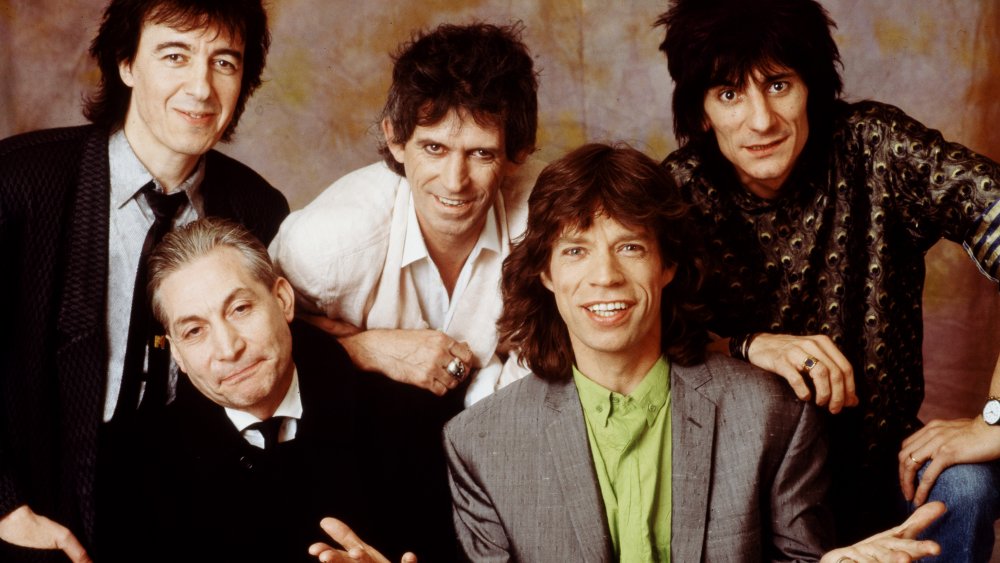Why Mick Jagger's Solo Album Almost Destroyed The Rolling Stones
Depending on how old you are, the Rolling Stones might seem less like a conglomeration of musicians and more like an immovable force of nature. It's been nearly sixty years, and that iconic cartoon tongue just keeps on waggling from the fronts of tee shirts, compilation albums, and ads for sold-out stadium appearances. Nothing, it seems, can stop the Stones from rolling.
But now, look back upon the 1980s, a time described by historians as "nobody's favorite." In 1985, Stones frontman Mick Jagger released his debut solo album, She's The Boss, and it nearly struck a killing blow to the band.
The Rolling Stones were already experiencing interpersonal struggles by this point. Mick Jagger and Keith Richards had been working together more or less nonstop for 23 years. That's a long time to stick with the same coworker, and the psychological drain of the celebrity lifestyle has a way of changing people. In his autobiography, Life, Richards described Jagger as jealous, paranoid, and constantly "on." The pair's back-and-forth was well documented, and included semi-regular bouts of stealing each other's girlfriends, as well as onstage temper tantrums.
To be on your own, like a rolling stone
So when Jagger started pouring his time into his solo career, Richards was less than pleased, believing that the band should take priority. Complicating matters was the fact that Jagger had used a Stones contract negotiation with CBS to land himself an extremely lucrative solo deal, according to the South Florida Sun-Sentinel, and hadn't informed his bandmates of the arrangement. Tempers were high. Richards described the solo project as a "death sentence" for the Rolling Stones, as explained by the Washington Post.
History is what it is, and the band resolved their differences, at least enough that they could all agree to keep making millions of dollars by not splitting up. That the Richards/Jagger partnership has continued this long is an oddity of the musical world, especially considering that Keith would go on to describe She's The Boss with the slightly stumbling simile, according to Time Magazine: "It's like Mein Kampf. Everybody had a copy, but nobody listened to it."
Harsh words, delivered from the mind of a man who once appeared in a Pirates of the Caribbean sequel.

